Malaysia: Predictions Coming state elections
With the state election date likely to be set for August 2023, here is a compilation of my predictions for each state.
Perikatan Nasional (PN) will contest all 235 seats in the 6 states. PAS is allocated more than half the seat allocation with 126 seats, Bersatu 83 seats, and Gerakan with 36 seats. PN will use the PAS logo during the campaign for Terengganu and Kelantan.
The unity government still has to finalise the seat allocations.
Voter turnout in the state elections is expected to be lower than for GE15. Around 60% to 70% are expected to turn out, which could possibly favour PN.
Saving Selangor
Barbarians at the gates
The state of Selangor is the jewel of the peninsula’s crown. Selangor consists of four major cities Shah Alam, Klang, kajang, and Petaling Jaya. Selangor also has a number of rural and coastal areas that gives the state some semblance of rural Malaysia. Selangor has both industry and agriculture, and the state’s population has crept just above 7 million people.
When the then Pakatan Rakyat seized the state during the 2008 electoral Tsunami, it sent shockwaves through the then Barisan Nasional federal government, partly leading to the demise of then prime minister Abdullah Ahmad Badawi.
Fast forward to 2023, Pakatan Harapan is now sharing a federal government with the Barisan Nasional and GPS from Sarawak, and in Selangor has 49 out of the 56 seats in the state assembly.
The state parliamentary term ends on 26th June, where there must be an election before 25th August 2023. Many believe this election may occur, as early as May.
The mood on the Pakatan side is varied, ranging from high confidence to deep concern for the coming election. However, based upon federal voting patterns, dubbed the ‘green wave’ during the last general election, Selangor is due to be hit hard.
The big question is to what degree?
Emerging factors
There are a number of new factors that may have influence of the result of the coming state election that didn’t exist during GE15.
1. The low popularity of the ‘unity government’: As time goes on the Anwar administration is very quickly losing popularity. The hard-line on reforming SOSMA, the appointment of Nurul Izzah as an economic advisor to her father, have disappointed many supporters. Zahid’s presence as deputy prime minister taints the administration. Any honeymoon for Anwar evaporated very quickly.
There is a possibility that hope for the Anwar administration is turning into a feeling of hopelessness, where the electorate turns on the government, like it did in byelections during the last Pakatan government. Pakatan lost 5 in a row in 2019. We must remember when MCA candidate Wee Jeck Seng lost his seat in Tanjong Piai to Pakatan during GE14 in 2018, only to win his seat back with a majority of 15,086 vote majority in the 2019 byelection.
Such a s swing would completely wipe out the sitting Selangor government and see a Perikatan Nasional government in Shah Alam.
2. The Zahid effect: Many speak of a ‘green wave’ in GE15. However, how much of the result was really due to the Zahid effect? Many see UMNO’s poor performance in the general election as voters rejecting the corruption within UMNO. Ahmad Zahid Hamidi enjoyed a short honeymoon with Pakatan voters due to his efforts in the formation of Anwar’s government. However, his move to postpone party elections for the top two posts, and sacking of those who oppose him within the party, led to a great exodus from UMNO to Bersatu.
Zahid still has to face his day in court over more corruption charges, which will remind the public of corruption. There can be no lying low for him. Zahid will continue to be an electoral liability, which Anwar and PKR will pay dearly for. The benefactor will be Bersatu, especially in the seats UMNO will try and defend.
3. The Azmin Factor: This is an unknown and very complex. Word is that Azmin Ali is determined to recover from his federal election loss, and return to his old job as chief minister he held between 2014-18, leading a PN government. He has a massive war-chest of money to spend.
Azmin may have to work hard to retain his own seat of Bukit Antarabangsa, or move to a safer seat. However, he was well respected as chief minister and has some leverage in the state, even he is seen as a political turncoat in other areas. To the Malay heartlands within Selangor, Azman has been loyal to the ‘Malay cause’.
This doesn’t mean Azmin is not tarnished. He was defeated by the sitting chief minister, Amirudin Shari in his federal seat of Gombak in the last general election.
Gauging the Azmin factor will be very interesting. A big win would project Azmin as a next generation of Malay-centric politics. A loss may send him into the political wilderness.
4. Some other factors: What the Anwar administration does before the Selangor state election will influence the result. Will Anwar be consistent with Malaysia Madani? Will the coming 2023 budget be formulated in mind for the coming state elections? How will current chief minister Amirudin perform on the hustings, facing his first election as leader? What will happen to Bersatu in the rapidly emerging party funds scandal? There is still much more to come out, where this could become a major factor in the coming election.
The quickly unraveling Bersatu bank account and vaccine procurement scandals could be a gamechanger in the coming election.
5. The youth vote: This is the first time the UNDI18 demographic will vote in the Selangor state election. The UNDI18 vote in Selangor should benefit PN within the seats that are in play to change. This could give PN another 3-5 percent support in the voting booths.
There is still a lot of time politically before the Selangor election, which could tip voters minds in any direction.
We can only speculate on the potential results, based upon assumptions we make about what is in the minds of voters on election day.
This first issue is avoiding three cornered fights between Pakatan and UMNO. There is plenty to suggest both groups will face the voters on a ‘unity government’ platform. This may not benefit Pakatan, with UMNO tainted by the Zahid factor. UMNO needs Pakatan more than Pakatan needs UMNO in Selangor.
There will be great complexity in coming to any seat allocation agreement. UMNO did not win any federal seats in Selangor in the general election, and state seats the currently held, including Sungei Air Tawar, Sungei Panjang, Hulu Bernam, Sungei Burong, and Semenyih all look in danger of falling. In addition, with the former Umno Selangor chief Nor Omar sacked from the party, it can be assumed many grassroots UMNO party members will just sit out the coming state election. UMNO is a liability to Pakatan.
Negotiations between Pakatan and UMNO must be held with the above realities in mind. Bersatu and PAS are eyeing these seats.
Predictions
Currently, Pakatan and UMNO hold 49 seats between them. PN hold 7 seats. DAP should hold most, if not all of their seats. However, the DAP leadership are planning another purge of long-time party stalwarts like Ronnie Liu from their candidate line up. Ronnie won his seat of Sungei Pelek with a 6,586 vote majority. Ronnie’s absence may place the Malay majority seat in jeopardy for the DAP, which will greatly favour PN.
The Padang Serai byelection, held just after the general election resulted in 80% of Malay voters supporting PN. Anecdotal evidence indicates the Indian community is disappointed with only one Indian within the Anwar cabinet.
This could potentially result in an onslaught on Pakatan seats, where Ijok, Bukit Malawati, Jeram, Kuang, Taman Templer, Hulu Damansara, Kota Damansara, Kota Anggrik, and Batu Tiga, in a worst case scenario could all be under threat.
The PN leadership are confident of winning 33 out of 56 seats, which would win them the Selangor government. However, its more probable that Pakatan-UMNO will hold onto 31 seats, while PN would win around 25 seats. This result is in line with voting patterns in the last general election, still allowing Pakatan to hold onto government with a reduced majority.
If seats like Morib, Senenta, Permatang, and Batang Kali fall, then PN would most probably win the state. Saving Selangor should be Pakatan’s highest priority. The worry is that Pakatan may be over confident.
Published in FMT 8th February 2023
The battle for Penang
PH will hold the citadel
The latest possible election date for Penang is October 1, although it maybe held before then.
Perikatan Nasional (PN) is approaching the coming six state elections aggressively. PN will hold Kelantan, and Terengganu. It will consolidate Kedah even further, and have some show in Negri Sembilan. Selangor will be a battle Royale, with Pakatan Harapan and UMNO expected to win with a reduced majority.
PN are hoping the ‘green wave’ will prevail in the coming state elections. However, Penang will be a very different case, with a number of other factors that will influence the results.
Back in the 2008 electoral Tsunami, the then Pakatan Rakyat opposition swept to power by winning 29 out of 40 seats in the Penang Legislative Assembly. The Lim Guan Eng led opposition routed the Barisan Nasional, which lost 27 seats. Gerakan, the MCA, and MIC were completely wiped out. UMNO was left with 11 seats, and became the opposition.
In 2018, Pakatan Harapan consolidated their power by winning 37 seats in the legislative assembly, losing four representatives after the Sheraton Putsch in February 2020. PH goes into the coming election with 35 seats (including 2 from UMNO).
Pas has just one seat (Kepala Batas) in the current legislative assembly. There are also 4 vacant seats (Bertam, Seberang Jaya, Sungei Acheh, and Telok Bahang), with the Speaker exercising his power under the Penang party hoping law.
Penang is a DAP citadel
Penang’s 1.7 million inhabitants are both ageing and shrinking. Penang was traditionally thought of as a Chinese dominated state, but now the Malay and Chinese populations are fairly even at 40 percent each, with the Indian community contributing 10 percent. On Penang Island there are 18 seats, which are primarily Chinese dominated, with the exceptions of Bayan Lepas, Pulau Betong, Telok Bahang, and Batu Muang. Most of the Chinese dominated seats are held by the DAP or PKR with massive majorities and are extremely safe.
Seats like Bukit Tambun, Bukit Tengah, and Perai have high Indian populations, and could be swayed by any changing trends in the Indian vote.
On the mainland, there are 22 seats, which are Malay dominated, except for Bagan Jermal, Bagan Dalam, Perai, Padang Lalang, Berapit, and Jawi.
Thus, it can be expected that DAP and PKR will almost certainly hold onto 26 seats, at a minimum. PAS will hold onto Penaga, in the northern part of the mainland, and PN should pick up Permatang Pasir, Beragan, Sungei Acheh, and have a very good chance in Bayan Lepas, and Telok Bahang, giving the PN 6 seats.
That leaves 8 seats, which are too hard to call. These include Bertam, Penang Tunggal, Sungei Dua, Telok Ayer Tawar, Seberang Jaya, Peranti, Sungei Bakap, and Pulau Betong.
Even if PH doesn’t win any of these tight seats, they can still form a government with a simple majority. However, if PN can win them, that would give them an opposition of up to 14 seats in the new legislative assembly.
Potential Surprises
The recent arrest of Muhyiddin Yassin on corruption charges could create an ‘Abah effect’, something like was seen with Najib Razak in the Johor State election last year. If this effect eventuates, then PN may perform much better in the tight seats.
If the Indian vote either turns against PH, or fails to turn out to vote, this could disadvantage PH.
Gerakan are planning to contest in 3 seats they held up to the 2008 state election. These include Pantai Jerejak, Batu Uban, and Batu Muang. With a moderate percentage of Chinese voters in each seat, Gerakan is likely to be punished for collaborating with PN, (the opposite side to the ‘Abah effect’).
Other issues
Voters are sophisticated in Penang and have a clear understanding of state verses federal issues. Penang has been run reasonably, however there is some grassroots pushback against what is sometimes perceived as arrogance by the state administration. We will only know how strong these feelings are with the results on election night.
In this state election, it’s the DAP that will prop-up PKR, which is going through a patch of unpopularity at this time. This will be a strong message to prime minister Anwar Ibrahim as to the importance of the DAP in supporting his administration.
34 seats would be a massive win for PH in Penang. 26 seats would be a disappointment. Likewise, 6 seats for PN should be expected, but 14 seats would give credence to the ‘green wave’ factor.
Penang will be an interesting state to watch.
Originally published in My Sin Chew 20th March 2023
Kedah set to become another PAS stronghold
The north will be firmly green after the state elections later this year and Pakatan Harapan faces a rout.
Kedah is set to become another PAS stronghold in the coming state elections. This means that Kelantan, Terengganu, Perlis and Kedah will all have PAS-led governments, leading to potential new dynamics in the Malaysian political landscape.
With Perikatan Nasional (PN) achieving 55.96% of the aggregate vote in federal seats in Kedah during the last general election, there are no visible factors that suggest the vote will be any different during the coming state elections. If that is the case then a PN coalition government will command a two-thirds majority in the new legislative assembly.
A turbulent 5 years in the state assembly
In 2018, Pakatan Harapan with Mukhriz Mahathir at the helm in Kedah, managed to win 18 seats in the 36-seat assembly. Umno, which had governed through the Barisan Nasional, lost 17 seats, with nine seats going to Pakatan Harapan (PH) and eight to PAS, giving them 15 seats. Umno was left with only three seats.
Mukhriz was nevertheless invited to form a government. Without any majority, the Mukhriz administration was doomed to instability from the beginning of its term in government.
The changing party affiliations within the Kedah state assembly have been primarily the result of federal events. The Sheraton Move, which brought down the PH administration in February 2020, put Mukhriz in an untenable position as menteri besar. He stayed in office with the support of assemblymen until Robert Ling, the Sidam representative, and Azman Nasrudin, the Lunas representative, crossed the floor to become independents, and later joined Bersatu.
Mukhriz resigned in May 2020, leading to PAS forming an alliance with Bersatu and Sanusi Nor becoming the new menteri besar.
The current assembly is made up of 21 PN assemblymen, where 15 are from PAS and six are from Bersatu. Umno and Pejuang have two assemblymen each and PH has 10, five of whom are from PKR, three from Amanah and two from DAP.
One seat, Gurun, became vacant when Johari Abdul became the Dewan Rakyat speaker.
A wipeout for Umno and PH
PN is likely to win at least 26 seats in the coming state election. It will hold on to its traditional seats, wrest the two Pejuang seats – Jitra and Anak Bukit – and two Umno seats – Sungai Tiang and Guar Chempedak. Then it will depend upon how many PH seats it can win, where seats like Ayer Hangat, Kota Siputeh, Bukit Kayu Hitam, Kubang Rotan, Pengkalan Kundor, Bukit Selambau, Kulim, and Bandar Baharu will all be in play.
In the most optimistic scenario for PN, it could win 32 seats in the new assembly, leaving PH with three. If PH can hold onto the seats in play, then it can return to the assembly with around 10 members. PH should hold Suka Menanti and Kota Darul Aman, and win back Lunas and Gurun, at a minimum.
Electoral factors pertaining to Kedah
Umno’s influence in Kedah was almost wiped out in the 2018 state elections, where it lost the government and retained only three seats. Consequently, Umno should not become a major factor in the elections, unless PH chairman Anwar Ibrahim allocates Umno more than two or three seats to contest. If Umno is given three or more seats, it will most probably backfire badly on PH.
PAS has created and nurtured many communities throughout Kedah, which have their own schools, mosques, shops and businesses. These communities are closely knit and should turn out in force to vote. It is going to be much more difficult for PH and Umno to get voters to the polling booths.
The quietness surrounding the criminal charges against former prime minister Muhyiddin Yassin will put the corruption issues in the background during the election. If PH brings up the issue during campaigning, it could very likely backfire.
There are no comprehensive polling details that indicate the support for PN during the last federal election is much different from what it is now. This indicates an electoral wipeout for PH-Umno in Kedah.
The major issue that will hit the PH-Umno alliance is the failure to alleviate cost of living and income issues. There are lots of scattered pockets of poverty in Kedah, where PH may find voter backlashes out of anger that fundamental cost of living issues have not been tackled. The latest rise in interest rates by Bank Negara Malaysia will not help.
It’s very unlikely that race and religious issues will play any major role in the coming campaign. Finally, the current menteri besar, Sanusi, has been playing up the issue of Putrajaya not cooperating with Kedah. If this narrative gets through to voters during the campaign, it will go against the Anwar “persona” on the hustings.
Implications on national political dynamics
With PAS in control of five northern states covering the bulk of the Malay heartlands as a block, these states can become much more assertive in federal-state relations. If state menteris besar cooperate en bloc, they will be able to extract many concessions from the federal government. We will also see Anwar’s administration swing around to being much more Malay-centric after the coming state elections.
The coming state elections are very important towards building a new powerbase for PAS to make demands upon the federal government, similar to the way Islamists have gained concessions from the central government in Indonesia over the last decade. This is something the new generation of PAS leaders will use as leverage.
Originally published in FMT 5th May 2023
Negeri Sembilan may be a bridge too far for PN
However, it won’t be plain sailing for PH and BN, which must still be very wise when allocating seats.
Negeri Sembilan is a very diverse state, just south of Klang Valley. It has industrial estates, palm oil estates, cement quarrying, tourist precincts, and a large spread of rural kampongs.
The population of Negeri Sembilan just reaches 1,100,000 people, where approximately 720,000 are eligible to vote in the coming state election, due before October this year. Negeri Sembilan is ethnically diverse with 56.6 percent of the population Malay, mainly Minangkabau, other Bumiputera groups making up 2.0 percent, with Chinese at 21.3 percent, and Indians at 14 percent. These groups are not uniformly dispersed throughout the state, and thus the ethnic mix influences electoral outcomes.
The current state government is Pakatan Harapan (PH), holding 20 seats in the state legislature, with the Barisan Nasional (BN) in opposition, holding 16 seats in the assembly. Both coalitions have combined to form a federal ‘unity government’ after GE15. In the coming state election, both groups are set to combine and run as a ‘unity coalition’.
The latest information is that both parties will run their respective candidates according to the seats they won in the 2018 state election, although this is not conformed.
Perikatan Nasional (PN) didn’t win any federal seats in Negeri Sembilan in GE15. Both PH and BN were untouchable by the so called ‘greenwave’. Nor did PN win any state seats in the last state election.
Although the PN leadership has pledged to capture the state in the coming state election, this might just be a ‘bridge too far.’
PH have the reasonably popular federal transport minister Anthony Loke, who holds the state seat of Chennah, and former Menteri Besar Mohamed Hasan, in the seat of Rantau, who is also federal defence minister, and the deputy president of UMNO to lead the campaign.
However, PAS has long nurtured kampong communities all over the central, south west, and south of the state. Support for PN in the seats of Sungei Lui, Seri Menanti, Senaling, Pilah, Johol, Labu, Puroi, Chembong, Gemas, and Gemencheh, can’t be underestimated.
If PN performed above expectations, this would give them up to 11 seats. However, this would be well short of the 19 seats needed to form a government. Nevertheless, this would embarrass the PH-BN coalition, who has no PN assembly members prior to the election.
The most likely result is that PN may be able to pick up a couple of seats in Negeri Sembilan, and sit isolated in a PH-BN packed assembly.
It would be very difficult for PN to pick up non-Malay votes, with the history of racial ranting by PAS that has gone on of late. This could possibly scare the non-Malay vote. PN could run some Gerakan candidates in Chinese majority seats. However, Gerakan isn’t strong in Negeri Sembilan.
PH-BN weaknesses are in the cost of living and welfare areas, where there are still large pockets of relative poverty in some areas, particularly within Indian communities in the estates. This could provide some backlash in the Indian vote, which may be important in some seats.
The crucial issue is how BN will look to its traditional Malay base, working
alongside the DAP. This could setback UMNO against Bersatu and PAS, canvassing for the Malay votes. This is particularly important as UMNO, as seen from GE15 is currently in the electoral doldrums.
The seat allocation between PH and BN will be very important towards maximising their aggregate vote. This will have a major bearing over the election result.
We will also observe whether the charging of Muhyiddin Yassin creates any ‘Abah factor’, of a leader who has been politically persecuted. This will be the first time to see if his pending prosecution plays any role in the result. Finally, if there is any movement on the ‘Najib pardon’ issue, there could be massive repercussions. Expect this issue to go quiet for the next couple of months.
Although we can expect a swing against PH-BN, from the 2018 result, this will not be enough for PN to take a couple of seats away from the ‘unity coalition’.
Originally published in FMT 23rd April 2023
Possible clean sweep in Kelantan and Terengganu for PAS
There will very likely be a clean sweep by Perikatan Nasional (PN) of all assembly seats in Kelantan and Terengganu, in the coming state elections.
In the 2018 state elections, PAS won 37 seats to the Barisan Nasional’s (BN) 8 seats, in the 45 member state assemble in Kelantan. In Terengganu, PAS won 22 seats to the BN’s 10 seats, in the 32 member state assembly.
However, in the 2022 federal election, PN won 14 out of 14 parliamentary seats in Kelantan, while also making a clean sweep in the 8 parliamentary seats, available in Terengganu.
If voting patterns remain the same as the federal election, PN would most likely win all the available seats Kelantan and Terengganu, routing out UMNO completely in both states. This would mean no other party other than PN’s PAS and Bersatu would have any representation in the east coast states.
Most of UMNO’s seats in Kelantan were won in 2018 on majorities ranging from 359 in Air Lanas, to 1,735 in Galas. Similarly in Terengganu, six UMNO seat majorities range between a 143 vote majority in Kuala Besut, to 1,884 in Seberang Takir. Only Langkap with a 3,446, and Telemung with a 4,159 majority, does UMNO have any chance of holding.
Kelantan and Terengganu are not strong for Bersatu. Thus, it would be assumed the majority of seat allocations in both states will go to PAS. Bersatu will most likely campaign under the PAS flag in some of the UMNO held constituencies. Bersatu would have a token presence in the new assemblies.
UMNO has lost its local champions in Kelantan. UMNO’s Tengku Razaleigh Hamzah narrowly lost to Mohd. Azizi Abu Naim in his long-held seat of Gua Musang, and Mohamed Mustafa (who actually defected to Bersatu) didn’t contest the last election, opting to retire. Thus, senior local UMNO personalities don’t carry much favour to voters anymore.
Local issues wont favour ‘unity government’
The poor water quality in Kelantan has been brought up on news portals over the last few weeks, where PAS has been blamed. Prime minister Anwar Ibrahim has offered federal assistance. Floods every year displace hundreds, and even sometimes thousands of families in both states. The causes of this calamity have not been approached seriously be any government.
However, PAS can come back with arguments, much of the federal funding due to Kelantan and Terengganu, has been channelled through federal agencies, rather than going directly to the states. This has created much anger within communities in Kelantan and Terengganu, that Anwar needs to grapple with.
Anwar forwarded the narrative that it will be the youth of Kelantan and Terengganu who will bring change to the states. Evidence for this shift in the vote votes was put down to the estimated 15,000 visitors to the ‘unity government’ open Raya open house, and some local social media supporting change. However, most of the youth who feel oppressed by the PAS way of governance have long left Kelantan and Terengganu and reside in other parts of Malaysia. The key for Pakatan Harapan is their ability to bring these voters back for the state election to vote. That’s a very optimistic task, even if these masses of reform minded youth existed.
Touching the heart of the Malay heartlands
The coming state elections in Kelantan and Terengganu boil down to being a PAS verses UMNO and Pakatan affair. UMNO is now definitely at the lowest ebb of support ever seen in the two states. The Pakatan message is just not getting through in both states. Amanah, which split from PAS didn’t take with it many supporters with it.
The messages of UMNO and Pakatan is really alien to the electorate. Issues that urban voters are passionate about, the eradication of corruption, abuse of power, and nepotism in government, just don’t resonate. There is a deep failing by UMNO and Pakatan to understand the psych of east coast voters. Thus, the news in daily online news portals is basically irrelevant to them.
Middle class and professional urban voters see PAS leader Abdul Hadi Awang’s rhetoric as divisive, and against the pluralism of Malaysian society. However, Hadi’s message about a government based upon Islam works well in the east coast. There are really no counter arguments for Muslims to rebut what Hadi is saying, particularly if you have lived your life in close-knit Muslim communities. To these people this is what the vision of Malaysia should be. Arguing against that vision, will make voters just reject those who carry counter-narratives.
The irony is that Mahathir Mohamed and Anwar created the conditions that brought about the polarization of Malaysian society. The Islamization of the education system, and the civil service, has created politicians like Hadi, who can resonate what Malaysians have been taught.
Thus, the Pakatan-BN philosophy just doesn’t work on the east coast. Voters won’t be swayed by financial scandals. The only issue that might dent into massive PAS support would be something along the lines of immoral behaviour, out of the Mahathir playbook. However, rest assure, if there was, these scandals would have long been made public and used against the PAS leadership.
PAS learnt from the 2004 loss to the state government in Terengganu. Kelantan and Terengganu are generally seen to be relatively free of corruption within the state administrations. They have set a record unmatched by other states or the federal government.
The only effective way in the foreseeable future for any ‘unity government’ to increase influence in Kelantan and Terengganu is to bring in PAS to the ‘unity government’ itself. This seemed to work well for Bersatu and Perikatan Nasional.
Originally published in FMT 15th May 2023
Subscribe Below:




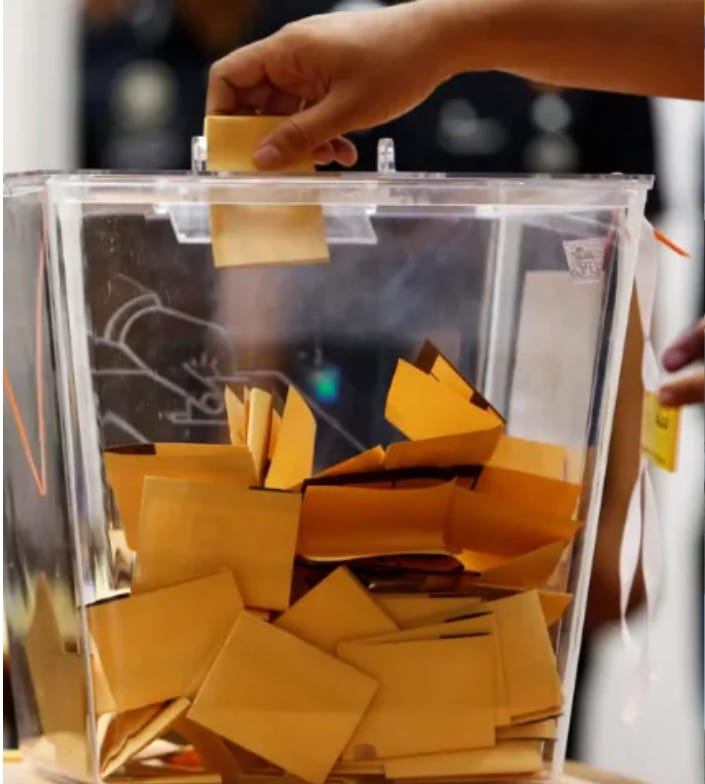
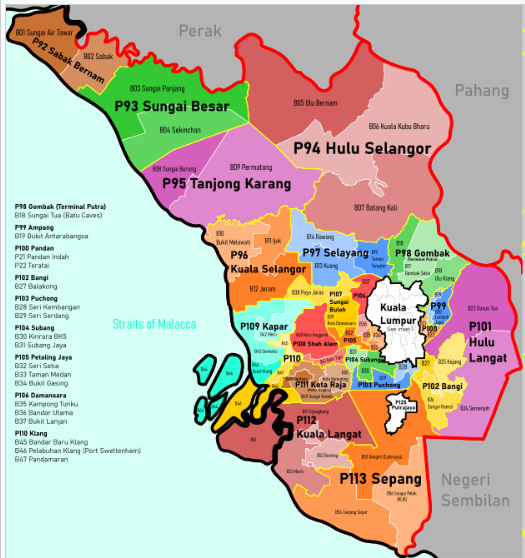
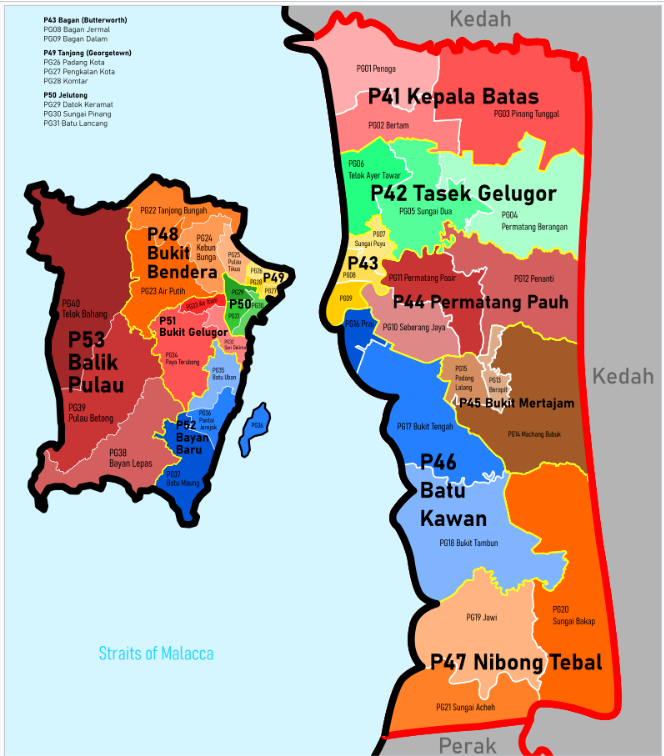
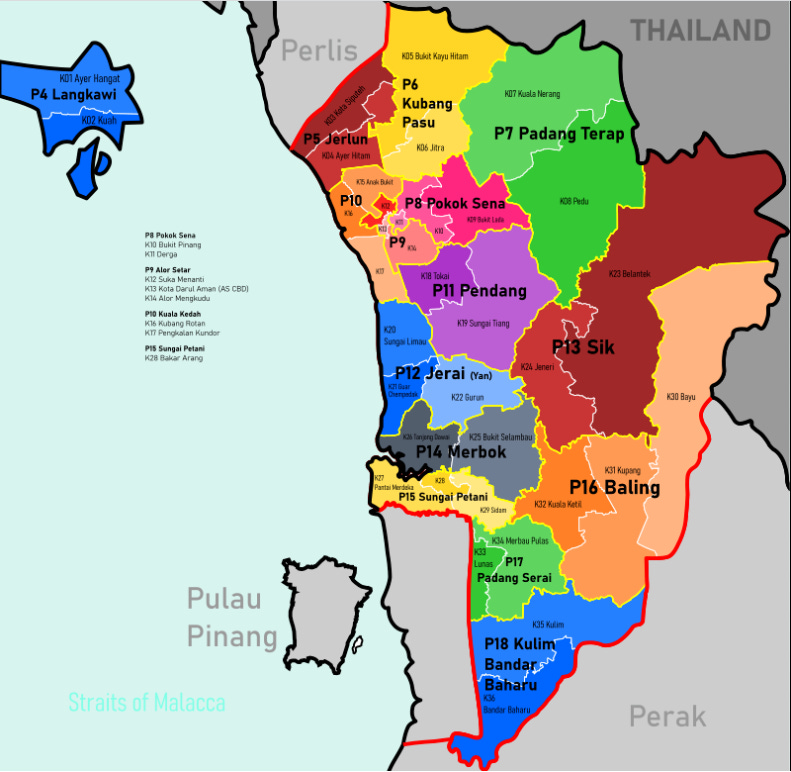
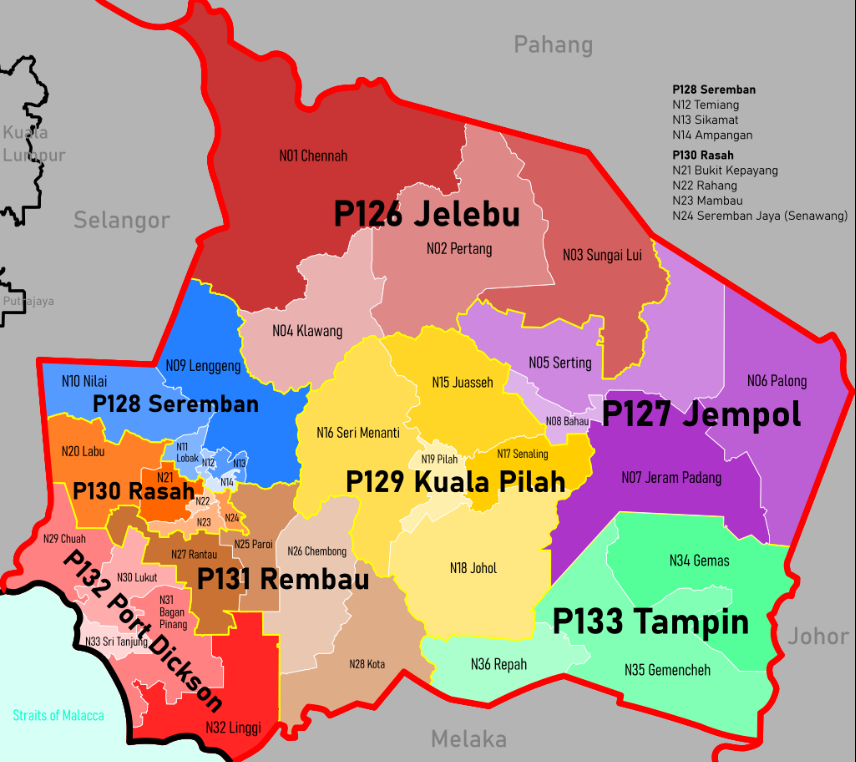
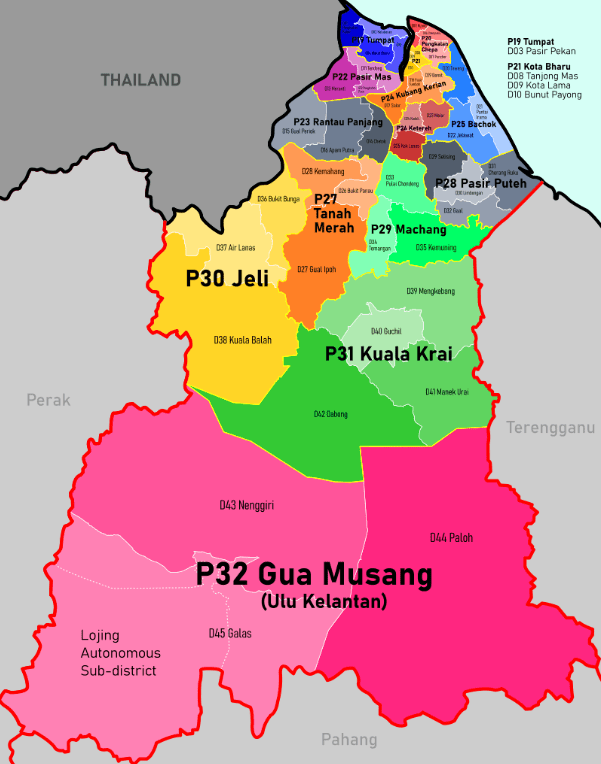

The article on Selangor is dated eighth of February 2023. It is now totally outdated.
Going to have Kopi O, and Teh Tarek.at my favourite Warong.
Joining me will be a Tok.Penghulu, Tok.Empat, Tok.Batin,Ketua Kampong. Ah Kow the Kopitiam.Towkay. Gopi, the Mamak Shop Head Waiter, a retired Driver to a Minister, a Retired Body Guard to a Corporate Tycoon. ,and Retired Midwife and a failed MLM promoter
These personalities knows all.
Official,unofficial,underground news.
And they sometime shape the destiny of our nation!!!